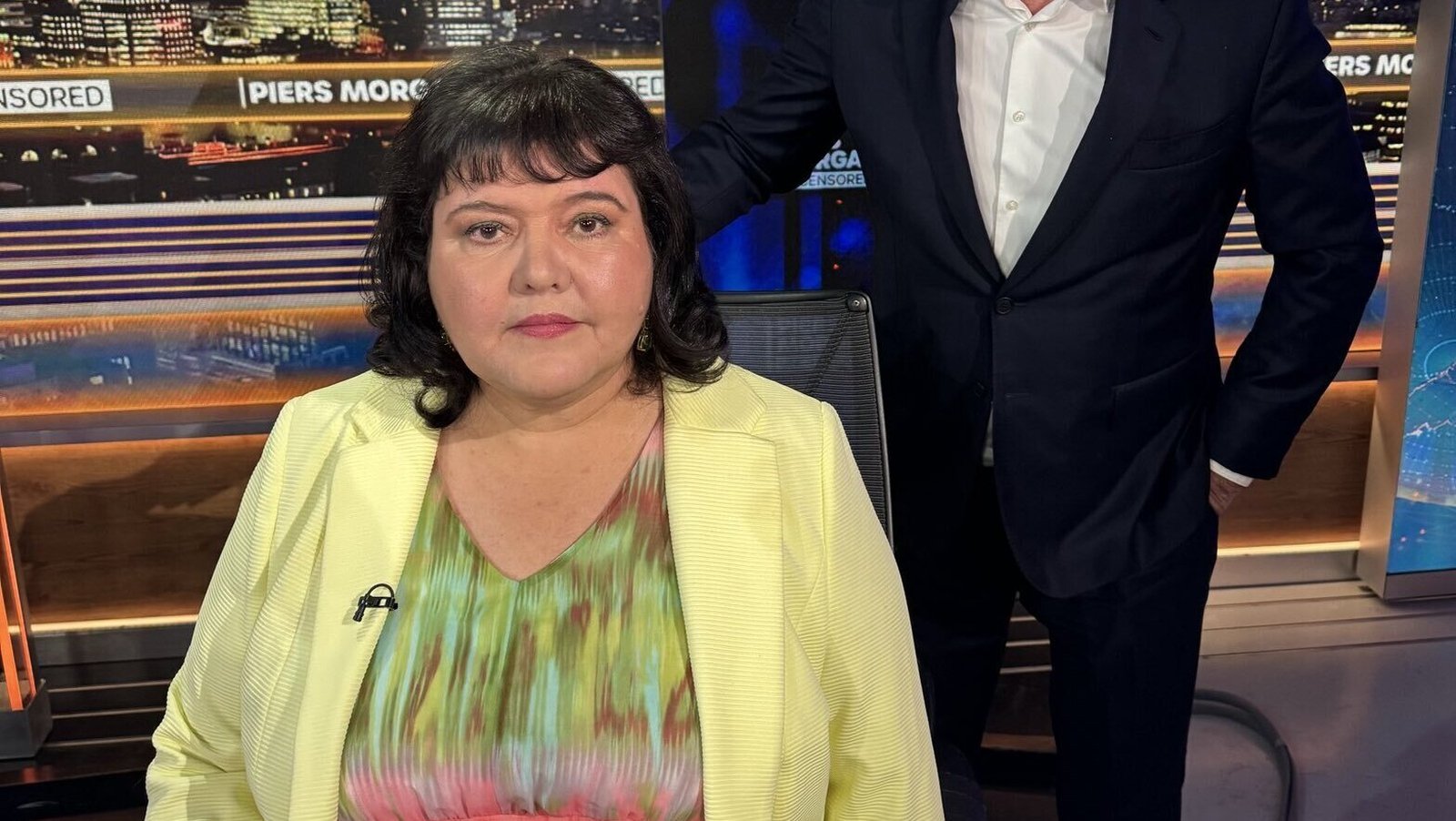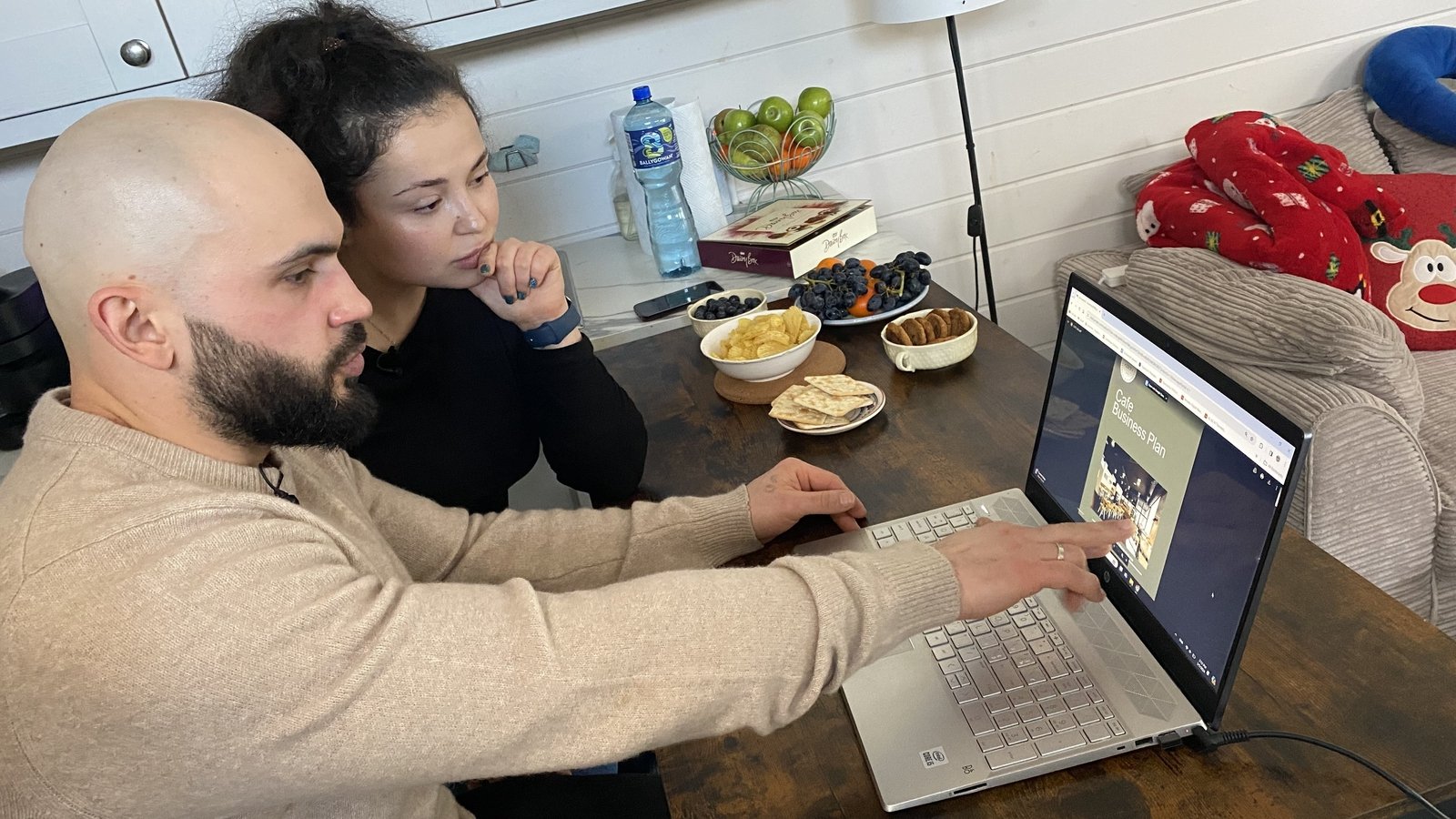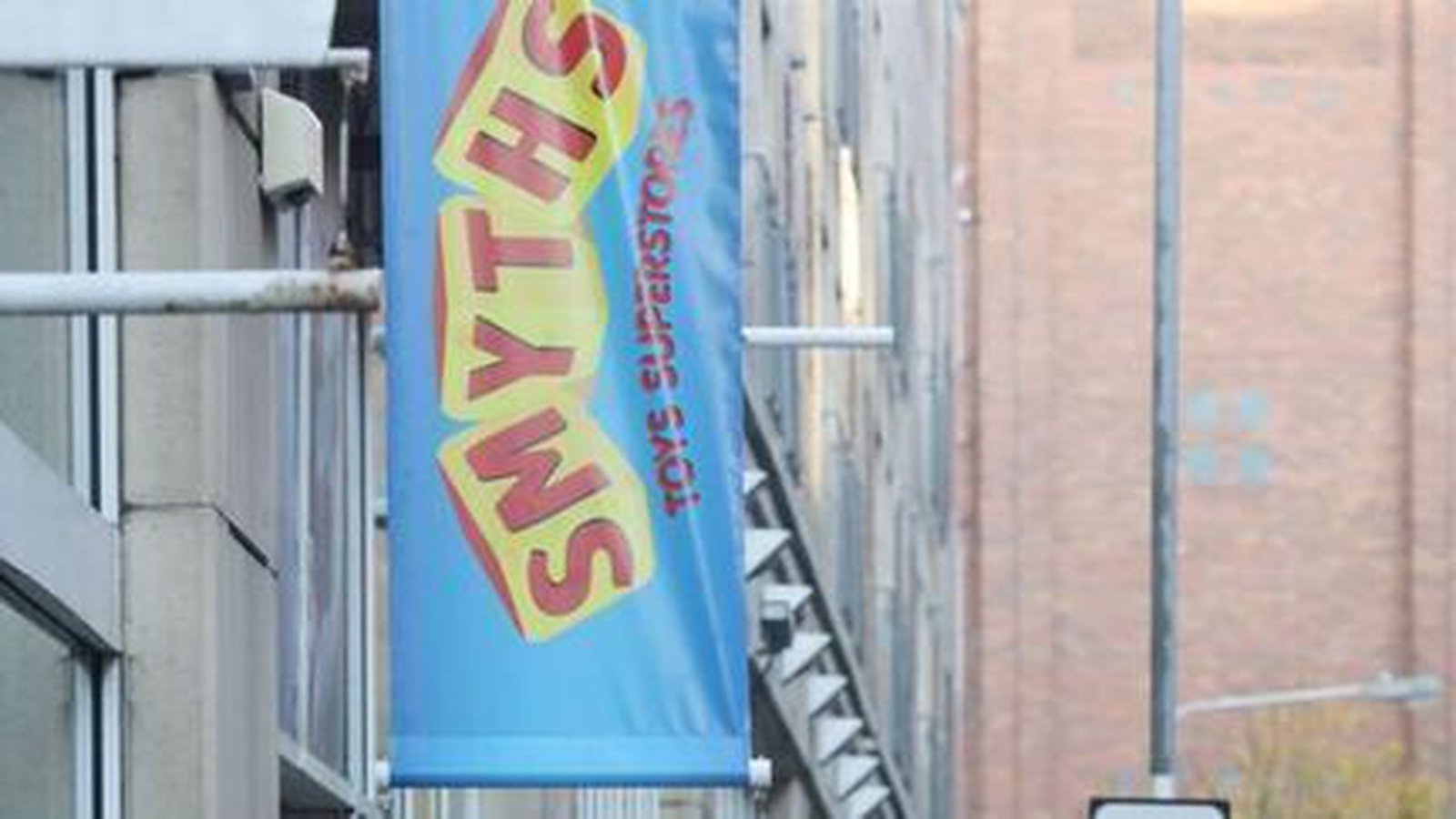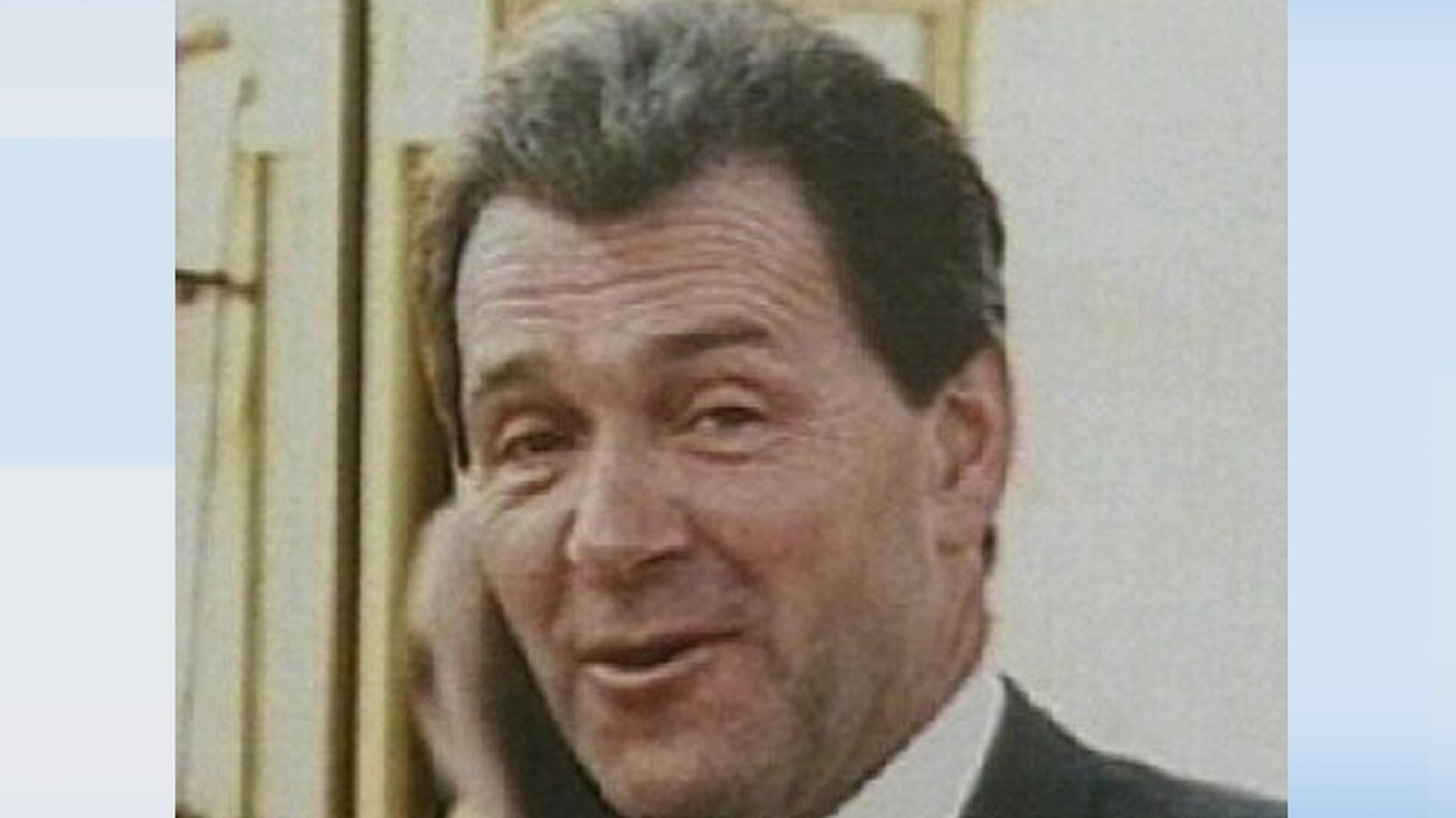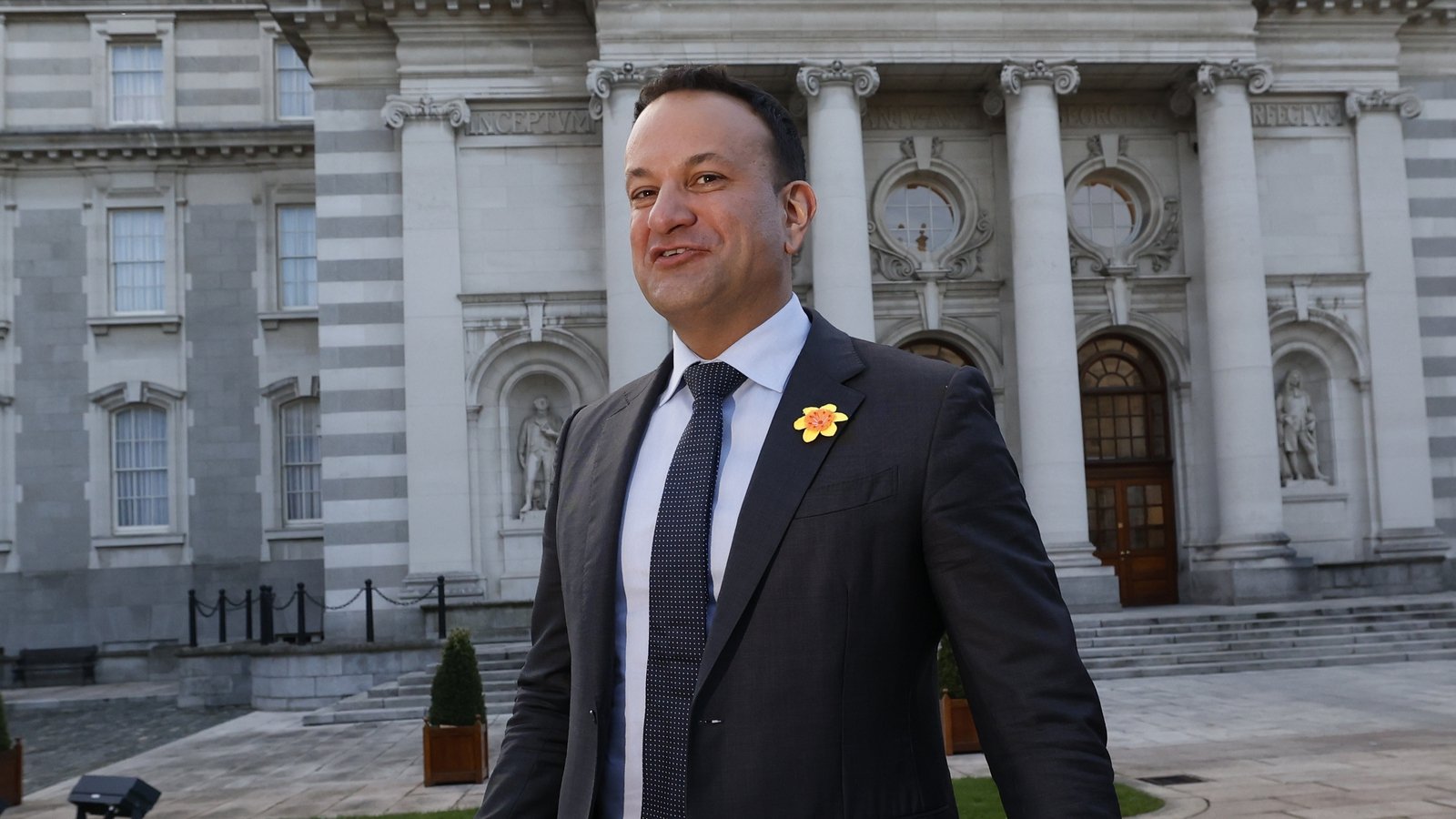The Russian Embassy’s ‘Pensioners Against Putin’ protest
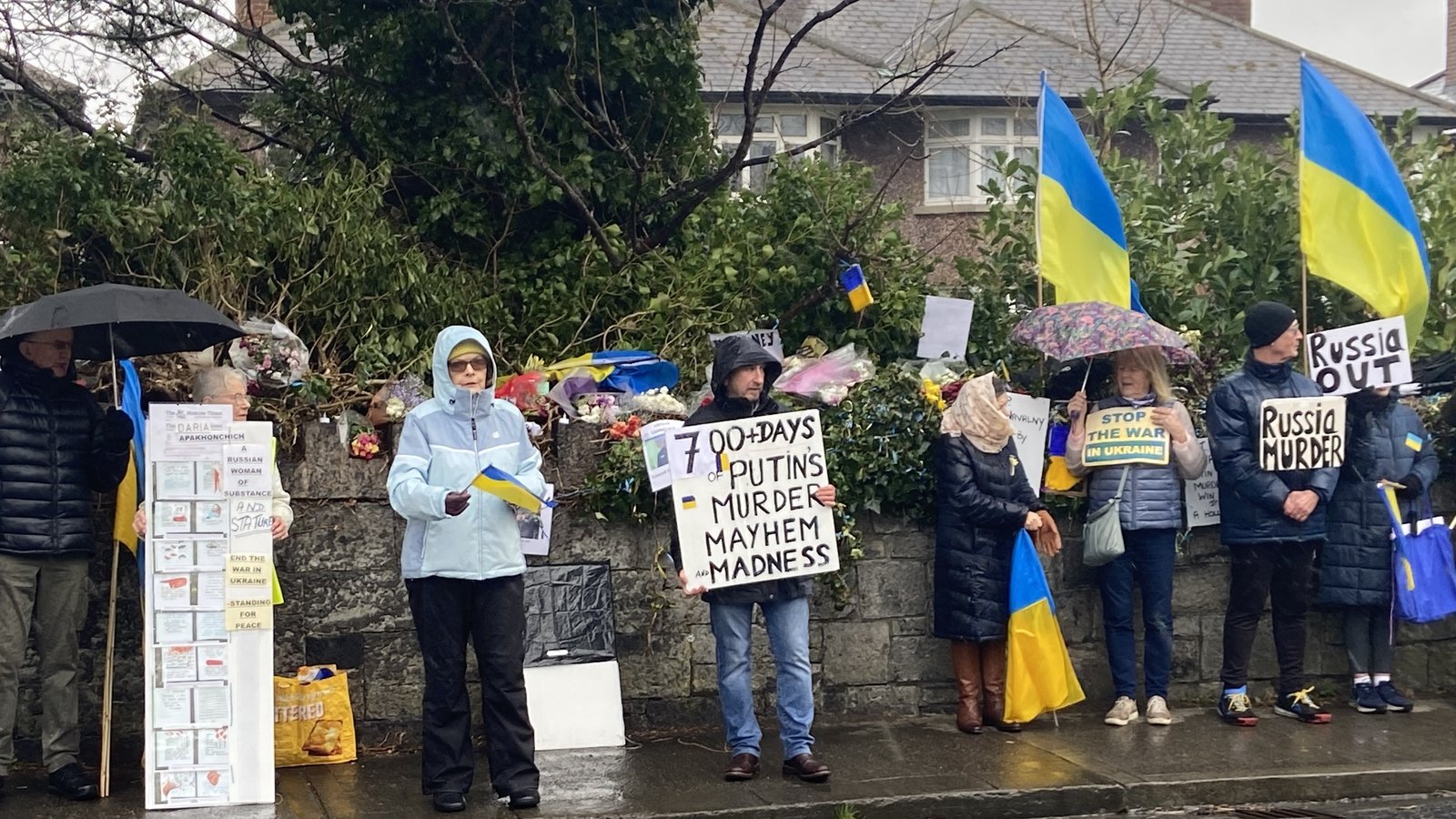
This week RTÉ News is carrying a series of reports across digital, radio and television looking at the situation in Ukraine two years after the Russian invasion.
A group of protestors has been involved in daily demonstrations outside the Russian Embassy in Dublin since the country invaded Ukraine two years ago.
Ahead of the second anniversary of the start of the war on Saturday, the demonstrators have called for an end to the death and destruction being caused by the conflict.
In the days after the invasion, the embassy located on Orwell Road, was the scene of large-scale pro-Ukraine protests.
During the two years since then, a core group of around 50 demonstrators have been maintaining a presence on the road outside on an informal basis.
The group has earned the nickname ‘Pensioners Against Putin’ as it is mainly made up of retired and semi-retired men and women.
One of the protestors, John Farrelly, has been taking part “almost daily”.
He said it is a big sacrifice for the “very mixed and diverse group of people who are completely against and opposed to the illegal and criminal invasion of Ukraine”.
“It is, because for most people, two years ago they weren’t planning to do this, but this group felt they had to do something.”
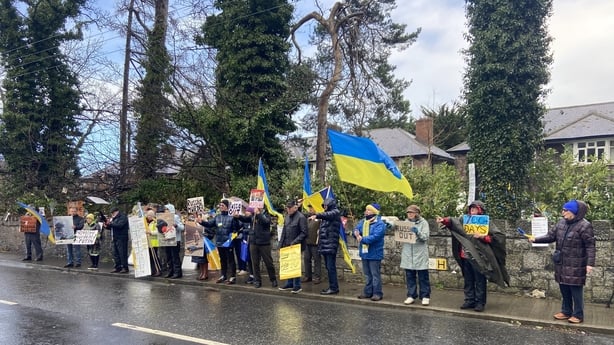
Speaking to RTÉ News today, Mr Farrelly said the group are staging daily demonstrations for three reasons.
“To oppose the invasion, secondly, to support Ukrainian people in defence of their country, their sovereign country, and thirdly, to support Russian people who know this war is wrong and unjust and can’t demonstrate like we can.”
He said people are welcome to participate if they have an afternoon free, a morning free or just a couple of hours free.
“We’re not a registered group in that sense. There’s no chair and there’s no secretary. It works in a very organic and open way.”
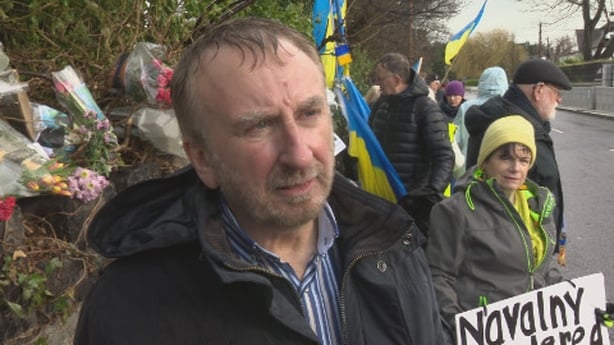
The numbers demonstrating today may have been smaller than the large crowds that turned out at the start of the war, but despite the size, they are making their voices heard.
Members of the group held placards with anti-war slogans and messages written in Russian, while there were chants of “Russia, out, out, out” and “shame on you” as diplomatic cars arrived and emerged from the embassy throughout the day.
The group of people, who were unknown to each other at the outset, have joined forces in pursuit of a common cause.
Joan McDonald said she feels “very strongly for democracy and for the people of Ukraine and what they are going through”.
She said the coming together of the long-term protestors was “very spontaneous” and she said there is “a great feeling of camaraderie”.
“People just appeared. I just came up on the first day and I just felt, apart from the fact that I live close by, it’s the least I could do to show my support to the people of Ukraine, protest strongly against dictatorship and the lack of democracy and the disgraceful behaviour of Russia.”
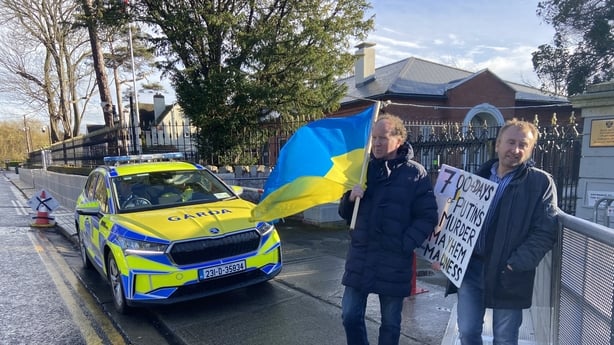
Another protestor, Eileen Counihan, said she has attended the protests on many days since the war broke out.
“You look at how long it’s going on, looking at the loss of life, looking that something must happen someday and why not do the talking now.”
Amid the blue and yellow flags and ribbons along the wall across from the embassy, there are flowers and candles in tribute to Russian opposition leader Alexei Navalny.
The protestors do not accept Russia’s claim that the Kremlin critic dropped dead following a walk.
Mark Canning, a former British diplomat, said “whether or not he was murdered or whether he died of other causes is immaterial, I mean, Putin killed him, he killed him by putting him in those appalling conditions”.
He described the death of the 47-year-old as “desperately sad”.
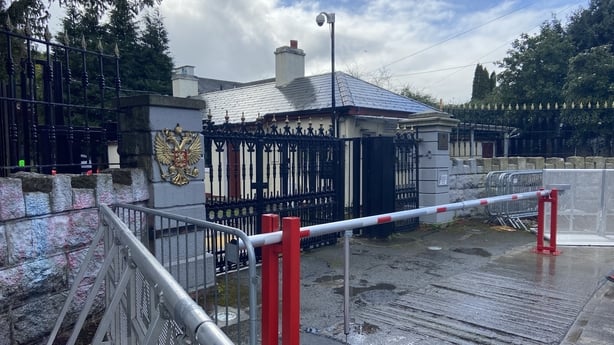
“I’m in awe of the people within Russia who’ve been laying flowers and doing things and it’s important to come up here and show our respect for him. He was an extraordinarily brave guy.”
As the 2nd anniversary of the invasion approaches, the protestors remain as resolute as ever, determined to maintain their daily demonstrations.
Julian Vignoles said he has been participating “nearly every day” and he said it must be “hundreds of days” at this stage.
He said there is a “great solidarity” among the participants.
“We believe in doing something for Ukraine. We don’t think we’re going to change the course of the war. But we do it for the struggle.”
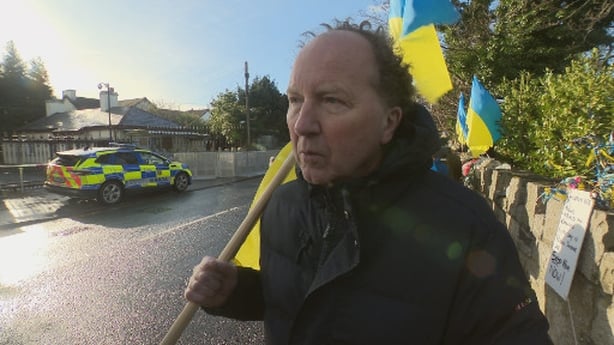
Asked about continuing the action, Mr Vignoles said “we are absolutely determined, more and more determined”.
“We’ll be here, we’ll be here until Russia is defeated, hopefully.”
The group has produced a book entitled ‘We Stand With Ukraine,’ which is a collection of essays and poems written by the protestors, described as an anthology of poetry, prose and protest.
All royalties from sales will be donated to Ukrainian Action, a registered non-governmental organisation.

